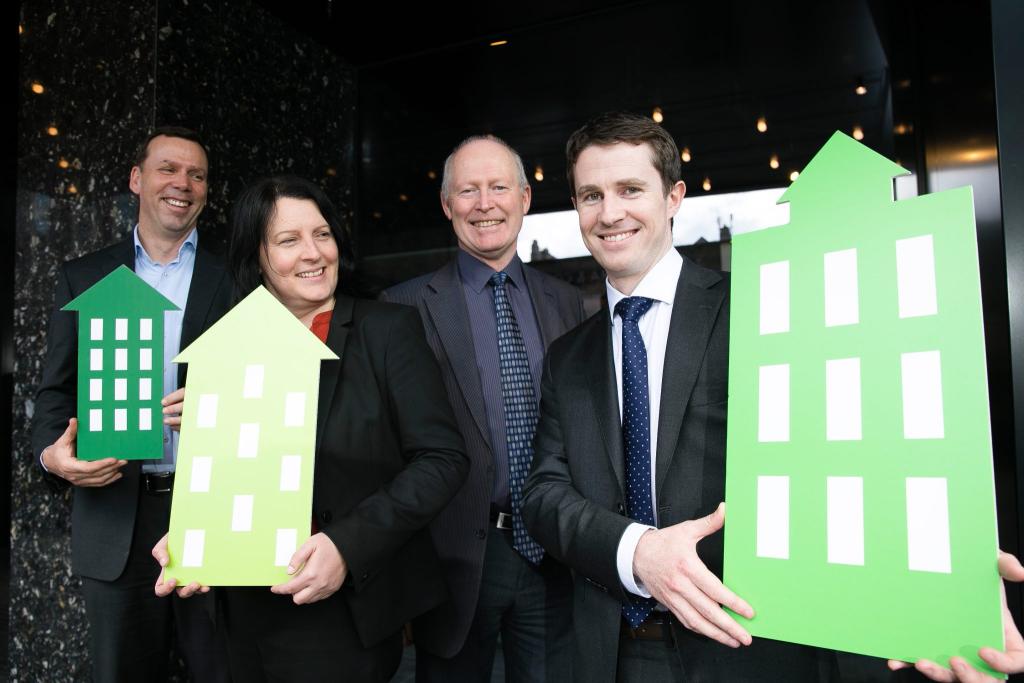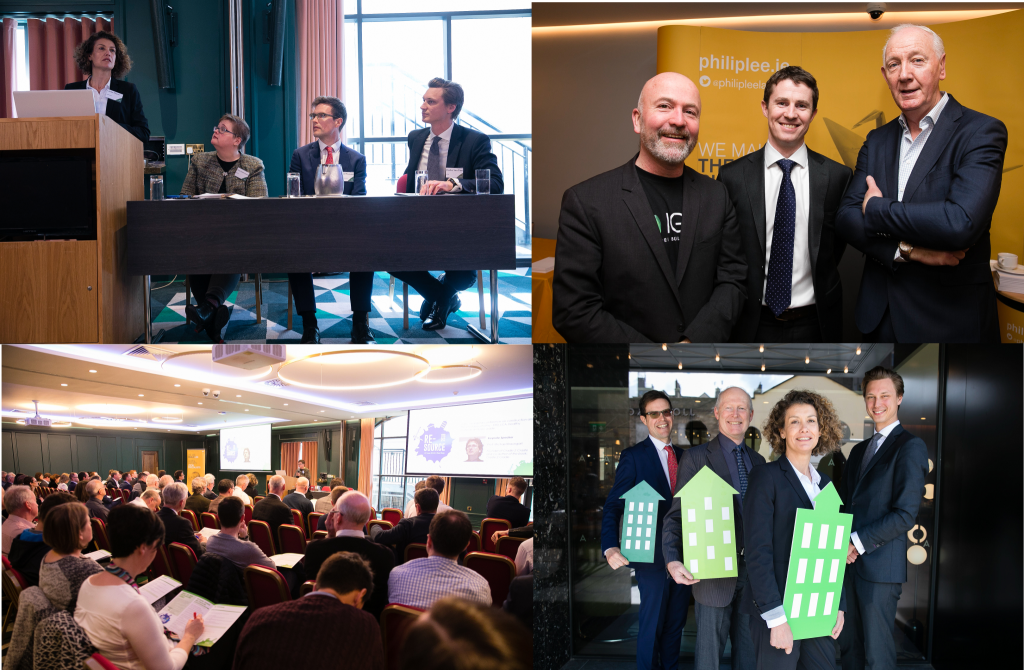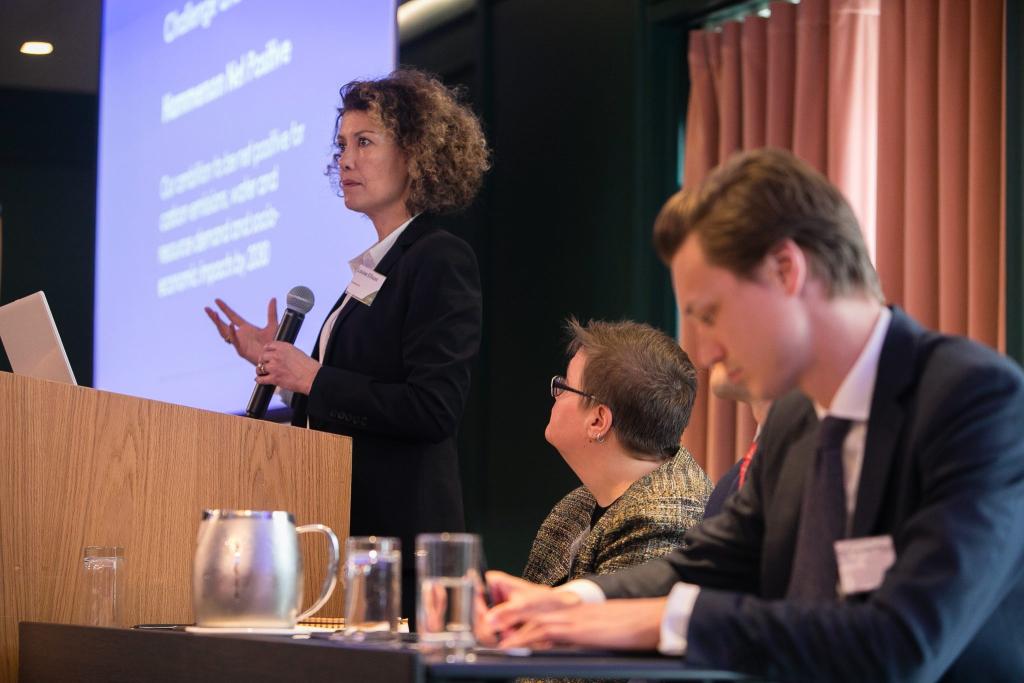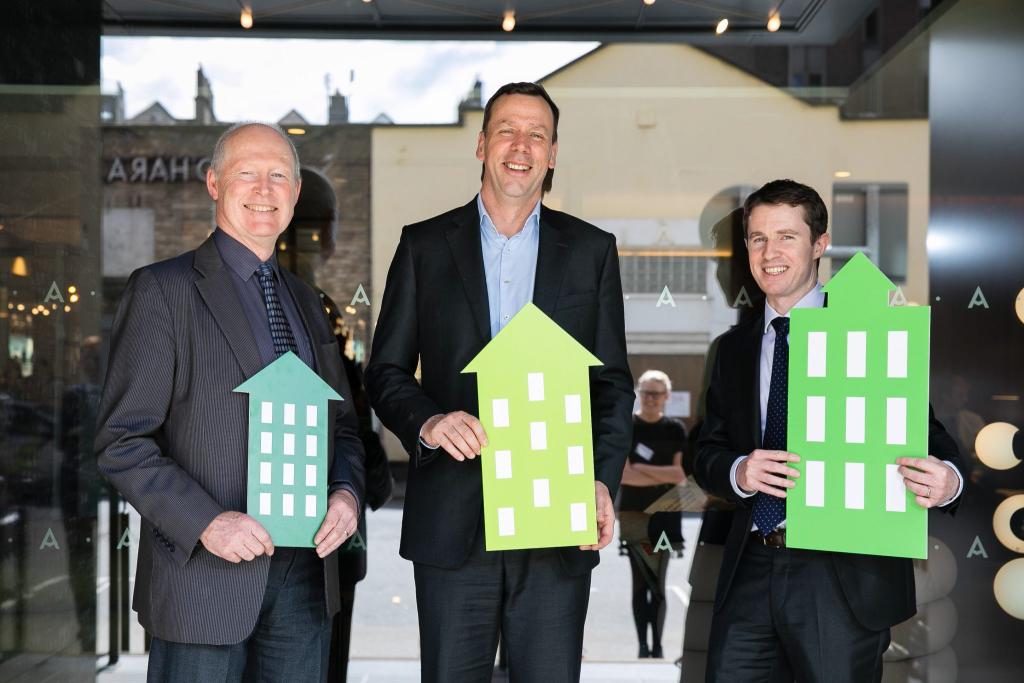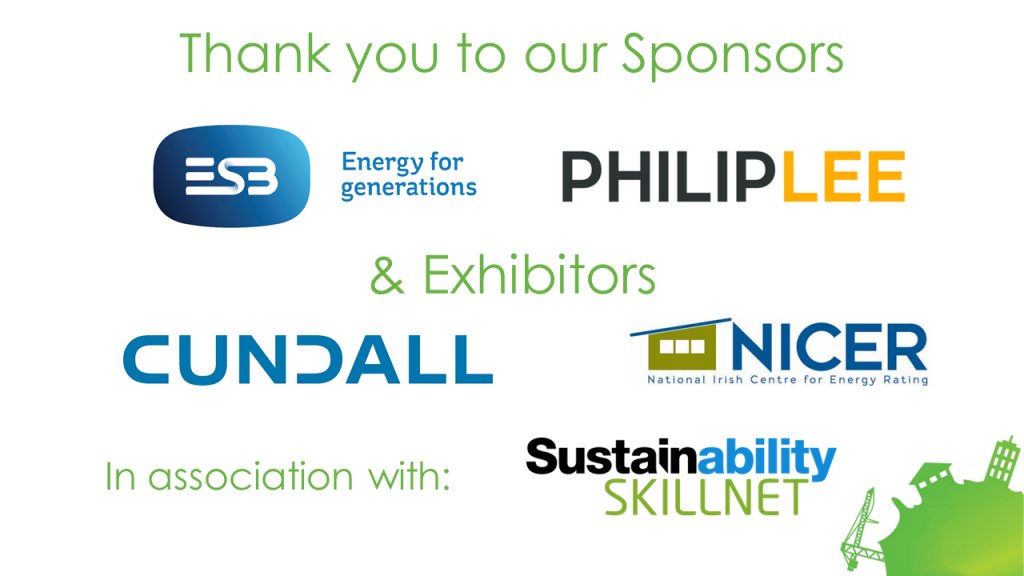The Green Room was back for 2018 with a great turn out on the day. Over 150 building representatives from throughout the industry gathered in Dublin on 2nd May 2018 to learn more about the latest trends nationally and internationally on sustainable non-residential buildings.
The conference was opened by Irish Green Building Council CEO, Pat Barry who said: “The number of green buildings has increased significantly in Ireland over the last 5 years. There are substantial social and economic impacts of choosing green. These buildings create a more productive workplace for occupants and can help with mitigation of climate change. Green Buildings also see benefits for corporate reputation and the building itself has lower volatility in market value”. The Irish Green Building Council wants to continue this promising trend and encourage developers to continue to choose green.
This year’s conference was based on two main themes, focusing on the imminent Nearly Zero Energy Building (NZEB) standard and on the role of corporate action in our transition to a low carbon-built environment.
Corporate Responsibility, Climate Change and why investors put increasing focus on green building?
Louise Ellison, Head of Sustainability of the UK retail property specialists Hammerson shared their ambition to be net positive for carbon emissions, water and resource demand and socio-economic impacts by 2030. In addition to this Louise spoke about the importance of managing risk and green leases. “Net Positive is an ambitious target and industry leaders like Hammerson have to raise the bar in this way if we are to tackle the risks presented by climate change.” In Ireland, Hammerson owns a number of retail centres such as Dundrum, the Iliac Centre and Swords Pavilions. They are also an investor in Kildare village and are currently developing a new urban quarter on O’Connell St, Dublin.
Charles Van Thiel of the Global Real Estate Sustainability Benchmark (GRESB) spoke about how they benchmark sustainability of real estate companies. Outlining their mission to enhance and protect shareholder value by assessing and empowering sustainability practices in the real asset sector. “The majority of large commercial portfolio owners, including some based in Ireland, are now benchmarking the sustainability of their holdings. Investors expect usable good quality data on the sustainability performance of the portfolios that they are investing in”.
Michael Finucane, Senior Loan Officer from the European Investment Bank discussed what the future holds for investing in NZEB. The European Investment Bank provide finance and expertise for sustainable investment projects that contribute to EU policy objectives.
The key messages from this session, chaired by Devyn Olson-Sawyer – IGBC Board Member, were how environmental factors contribute to the financial performance of real estate portfolios. Also, to maximise their returns investors should look to focus on green building.
What are the key steps to achieve a NZEB building?
Buildings have a significant role in the abatement of emissions in Ireland. For Ireland to meet its climate targets new measures need to be implemented to reduce the impact of both new and existing buildings going forward. To assist in this legislation is driving demand for more sustainable commercial buildings. From 1st of January 2019 all non-residential buildings need to comply with the new Part L Building Regulations. In this session, we looked at steps through case studies of recently completed or designed developments that comply with this new standard.
Orla Coyle of the Sustainable Energy Authority of Ireland (SEAI) opened our NZEB session at the Green Room 2018. “Making our buildings more energy efficient is critical in reaching Ireland’s climate targets. The nearly Zero Energy Building (nZEB) standard will come into force on the 1st January 2019 for all new commercial development. Regulations are also moving towards the deeper retrofit of our existing building stock”.
Andy Lundberg from Passivate, took us through the first steps to NZEB by explaining simple measures you can take for NZEB form factor, as well as fabric solutions for NZEB commercial buildings. In addition, they provided a detailed description of building envelope versus thermal envelope as a compact building envelope form does not always equal an efficient building. A compact thermal envelope is what’s required.
William O’Donnell, associate director from IN2 Engineering Design Partnership spoke about using Dynamic Simulation Model (DSM) in a project to design for NZEB, also looking at ventilation, solar heat gain and daylight. IN2 are assisting the Trinity Business school development to achieve a NZEB standard with an A2 Building Energy Rating.
John Walsh from the Smart Energy Services, ESB discussed the importance of energy monitoring for NZEB and their LEED platinum building at Dublin airport. The project involved several innovative designs for low energy cooling such as a chilled beam design. The project also consisted of a thermal envelope upgrade, energy modelling throughout the project and the re-use over 50% of the structural elements of the building. Near zero energy buildings are possible but need a holistic approach.
Our speaker Donal O’Connor from OCSC completed the discussion on NZEB with a talk on designing Effective Renewables which is the Final Part of NZEB Compliance. The speaker discussed OCSC’s NZEB Compliance Strategy, be Mean, be Lean, be Green approach through their case study, ESB Heritage Archive, which obtained a BREEAM Excellent Rating. Lessons learned to achieve NZEB Compliance include a holistic design approach from all disciplines is required and design strategy is key.
Overall this session aimed to provide commercial building professionals with the tools to achieve a NZEB compliant building, by reviewing valuable case studies. A key theme running through the session was the need for a holistic design approach throughout all phases of the project and that NZEB standards can be achieved through innovative design and creativity.
